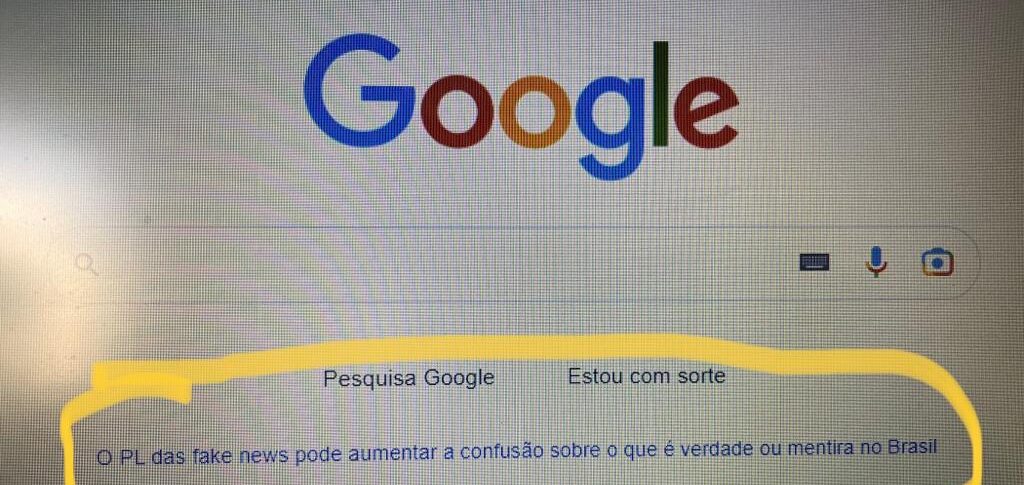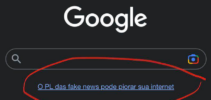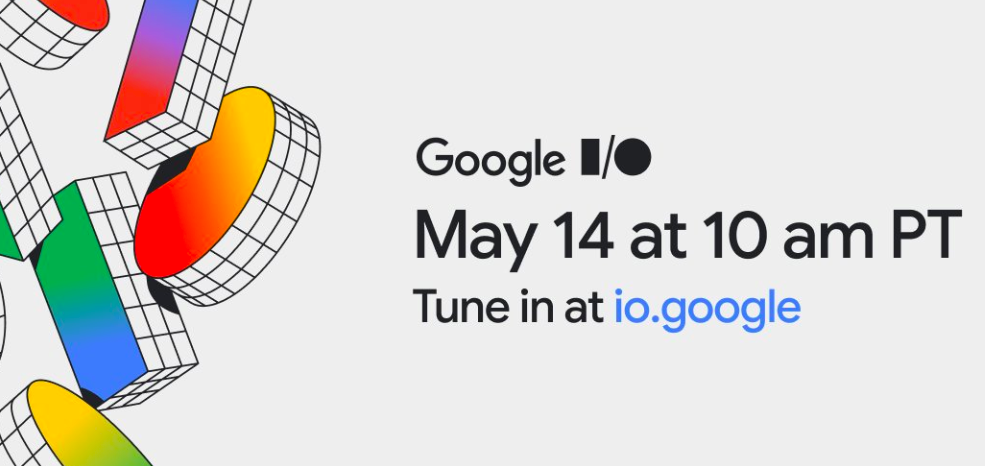Artists and influencers such as Felipe Neto and Gregório Divivier, and profiles such as Sleeping Giants warn about the intense campaign of Google, including misinformation about the project.
ADVERTISING
“I have never seen so much dirt in a political dispute. O Google, for example, uses its majority strength in the market to expand the reach of the positions of those who are against the project and reduce those who are in favor of the project”, said deputy Orlando Silva (PCdoB-SP), PL rapporteur, on Monday. fair (1st) after the traditional action of trade unions on Labor Day, in Vale do Anhangabaú.
A report published by NetLab, Internet and Social Media Studies Laboratory at the Federal University of Rio de Janeiro (UFRJ), points to a bias in search results in Google to prioritize content critical to the bill. “We have gathered evidence that the Google has been presenting biased search results for users who search for terms related to the bill, insinuating that searches are for “PL da Censura”, which is the name used by the opposition against the regulation of platforms, and not the official name “PL 2630” or the name used by the press 'PL das Fake News'”, says the study.
Journalists and press organizations are also being censored by Twitter:
ADVERTISING
What you need to know about the Fake News PL
O PL from Fake News seeks to regulate social networks in the country and create control mechanisms against hate speech, lies and the formation of criminal groups, such as anti-Semites and neo-Nazis, who are behind attacks on schools.
The site Congress in Focus gave a summary of how the Bill turned out with the changes made in recent days so that it can go to the vote and not be blocked by conservatives in the Chamber:
- The PL prohibits the operation of inauthentic accounts and automated accounts not identified as such and requires confirmation of identification of users and those responsible for the accounts;
- Guarantees users the right to compensation for individual or diffuse damage to fundamental rights and the right to appeal the unavailability of content and accounts;
- Requires social media providers to produce quarterly transparency reports that will detail the procedures used to moderate content;
- Platforms are obliged to identify all forms of advertising and paid content promotion;
- Sets standards for public bodies and political agents to act on social media, including the obligation to disclose advertising and content promotion service contracts,
- Creates an Internet Transparency and Responsibility Council, with the task of studying and making recommendations on freedom, responsibility and transparency in the digital environment;
- The Council will also prepare proposals for codes of conduct for social networks and private messaging services, to be subsequently evaluated and voted on by Congress;
- Provides for the creation of a self-regulatory body by platforms to promote transparency and responsibility in the use of the internet;
- Establishes sanctions, to be applied by the Judiciary, in the event of non-compliance with the law. They can range from a warning and deadline to adopt corrective measures to a maximum fine of 10% of the economic group's last annual revenue in Brazil.
- The amounts to be paid to authors of non-journalistic content, the payment term and the remuneration model will be defined in negotiation between the platforms and, preferably, collective copyright management associations.
See the positioning of the Google, published on its Discovery platform:
ADVERTISING
“It is important to highlight the Google It is a private company and has this freedom, just like any other means of communication, such as a newspaper or magazine, it has the right to defend its ideas and opinions.
Unlike search, which uses ranking systems and signals to present results, the home page of Google It is a free space that can be used by the company to take a stance on important issues for society.
Which does not mean, of course, that the company can exaggerate or manipulate information to influence public opinion.
ADVERTISING
Therefore, the company must be transparent and ethical in its actions, so that there are no abuses or manipulations that harm society.
If there are exaggerations or misconduct, these actions must be investigated and punished.
On the other hand, trying to control what the Google can do on its own property is an excess on the part of those who are against the company's defense.
ADVERTISING
Freedom of expression and the press are fundamental in a democratic society, and this freedom must be respected, even if we do not agree with the opinions presented.”
Read also
Receive news and newsletters do Curto News by Telegram e WhatsApp.





